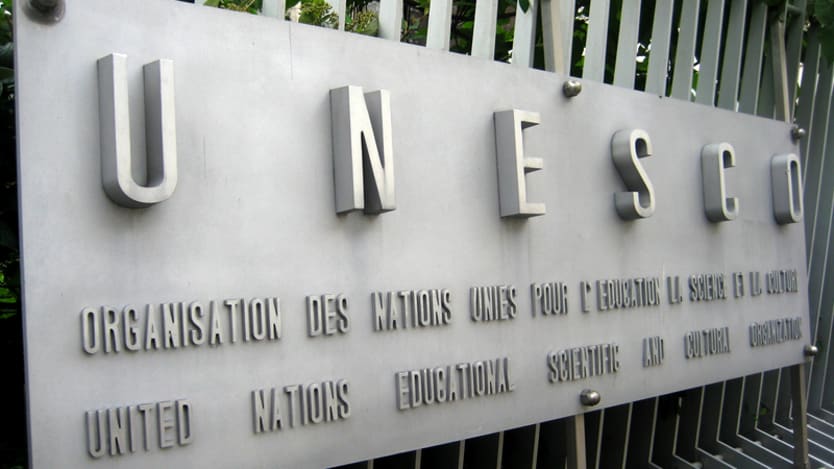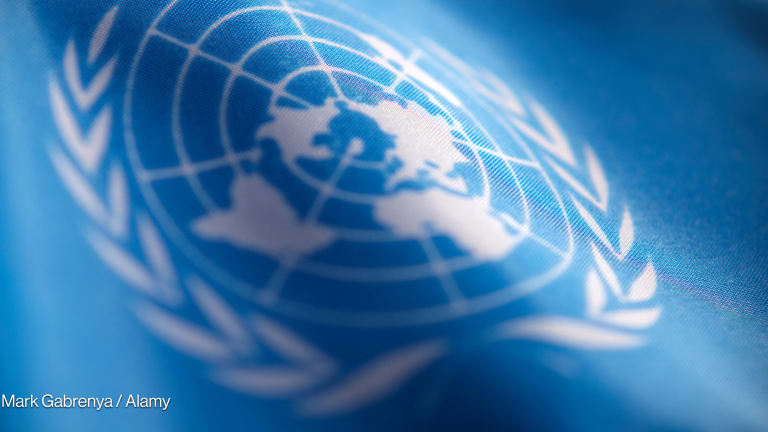
UNITED NATIONS — The Trump administration’s latest swing at the United Nations — quitting UNESCO — likely won’t have immediate serious implications for the educational and world heritage organization. But the decision, announced last week by the State Department, serves as further indication that U.S.-U.N. relations will continue to take an unchartered turn.
The announcement could also mean that other U.N. bodies with voluntary funding pools remain vulnerable to cuts, said Natalie Samarasinghe, the executive director of the independent policy group United Nations Association-U.K.
“It is in terms of what happens next that can be cause for concern, and in terms of the international audience, it is another sign the U.S. does not want to play ball and cooperate. It is able to go alone,” Samarasinghe told Devex.
The State Department cited what it called UNESCO’s “anti-Israel bias” in its reasoning to exit the organization, and questioned the effectiveness of its work. UNESCO adopted a 2015 resolution that criticized Israel for mishandling heritage sites in Jerusalem, and this year, declared a contested area of Hebron, in the West Bank, as a Palestinian World Heritage site in danger.
Israel followed the U.S.’ lead last week by announcing it too would quit the cultural and heritage organization.
“It was not a coordinated departure, from what I have heard. It’s a question of unpredictability and whether others jump on the bandwagon,” said Samarasinghe.
UNESCO Director-General Irina Bokova — the one-time candidate for U.N. chief last year — reportedly expressed her “profound regret” over the decision of the U.S., saying it “is not just about World Heritage. [It] is a loss to both the organization and the U.S.”
The U.S. stopped funding 22 percent of UNESCO’s core budget in 2011, shortly after UNESCO admitted the Palestinian Authority as a full member — per a U.S. amendment that prohibits funding to any U.N. entity that accepts Palestinians as full members. Arab states have largely stepped up to fill in for the funding shortfall UNESCO experienced over the past few years, as a result of the cuts from the U.S.
UNESCO, operating with a 2016-2017 budget of $667 million, highlights education and development in Africa and gender equality as some of its main priorities. It is most often known, though, for designating World Heritage sites across the world.
There is some question of UNESCO’S relevancy, as U.N. experts such as Richard Gowan have pointed out, telling Vox, “A lot of UNESCO’s work is quite pointless.”
But it also engages in important, practical work, such as international education of the Holocaust and tsunami awareness work.
The full impact of this move will depend on how much this “emboldens the hard liners,” Samarasinghe said. “There have been rumblings about UNESCO for months, but we were not expecting this to come. It might not be as visceral, because already there has been a defacto situation with UNESCO, but it could have a huge impact on other agencies.”
Observers believe agencies that work on sexual and reproductive issues and women’s health — the U.N. Population Fund was already de-funded by the U.S. this spring — could be future targets. The same goes for other agencies such as UNICEF and the World Food Programme that both have large amounts of U.S. voluntary funding.
“They could then be empowered to stop funding these organizations,” Samarasinghe said.
The U.S. still sits on the executive board of UNESCO, even as it owes the organization past dues of six years. Its formal exit from the agency will take effect at the end of 2018, when it will then become an observer state.
Read more international development news online, and subscribe to The Development Newswire to receive the latest from the world’s leading donors and decision-makers — emailed to you free every business day.
Search for articles
Most Read
- 1
- 2
- 3
- 4
- 5








